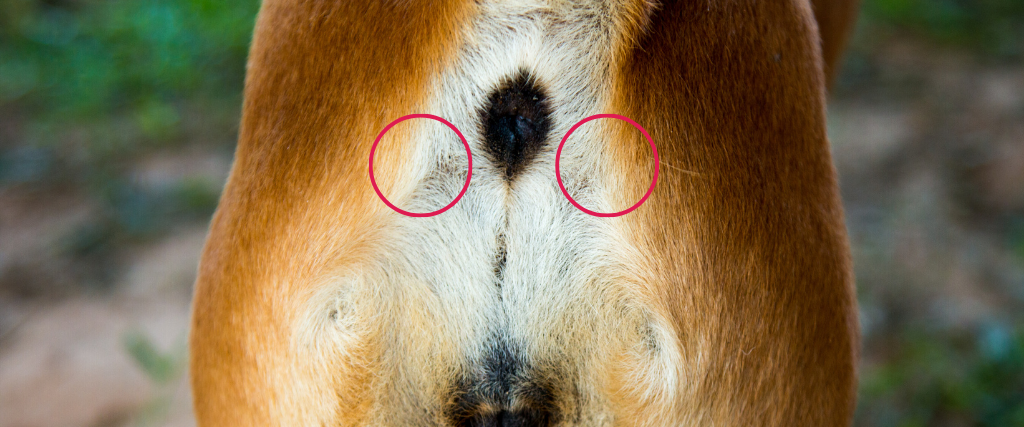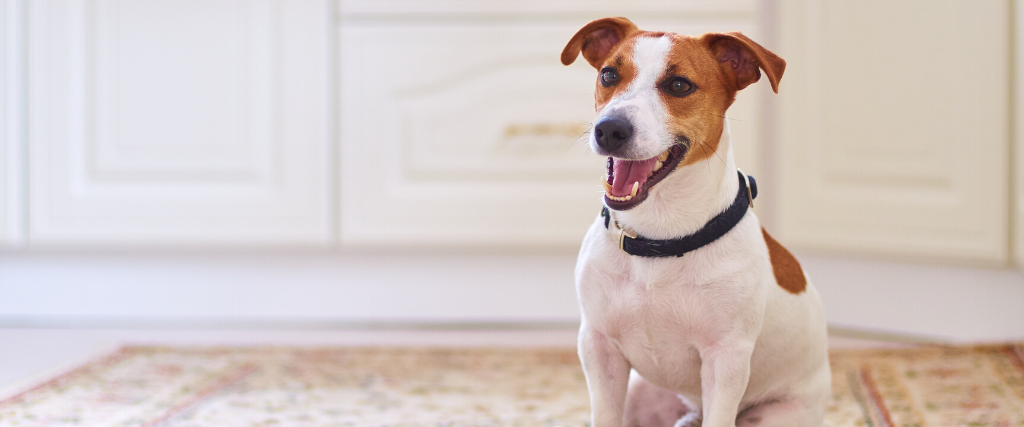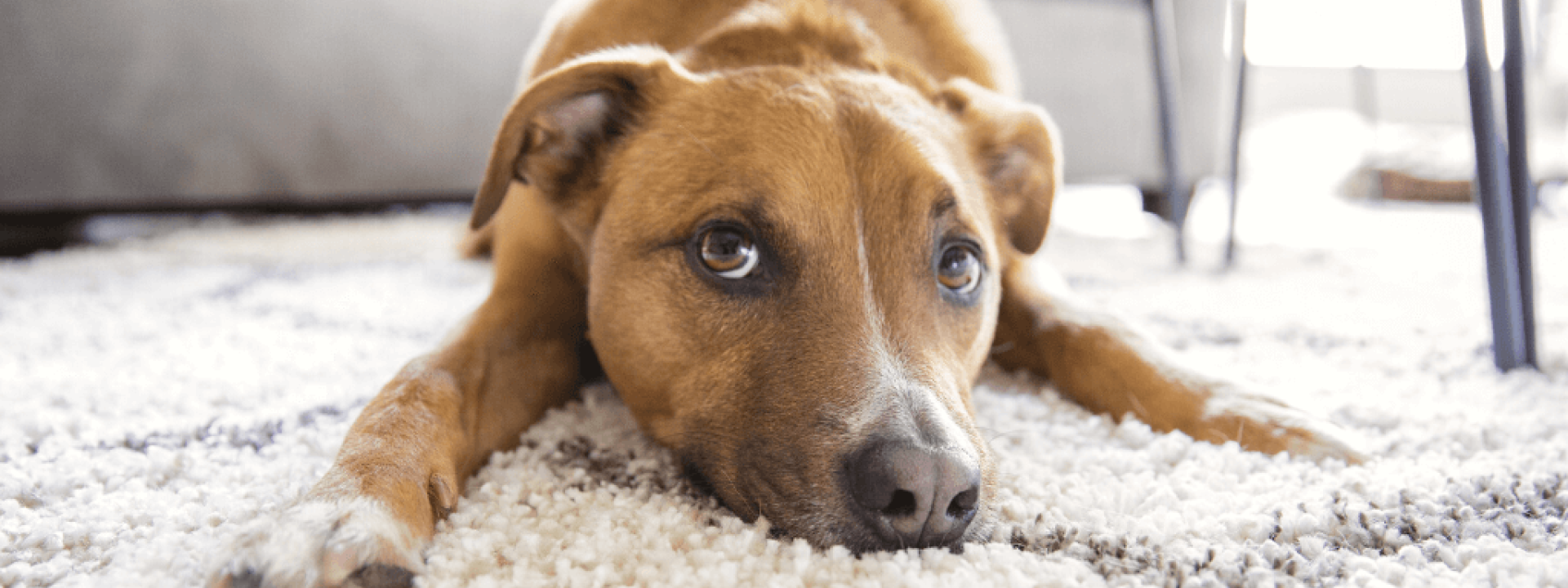Anal Glands are gross, but every dog and cat has them.
Today, we’re going to get all up in your cat or dog’s business. I’m sorry, but it has to be done. Dogs and cats have scent glands, called anal glands, on either side of the anus, similar to skunks.
Here is a picture of where they’re located, at about 4 o’clock and 8 o’clock on a clock face (the red circles indicate approximate location):

The purpose of these glands is to produce a foul-smelling brown fishy-smelling discharge that gets squeezed out every time your dog or cat strains to poop. We think it's a marking mechanism, perhaps a way dogs and cats identify themselves to each other.
Each anal gland has a tiny little duct that empties it at the anal opening. These ducts can become obstructed, leaving the gland unable to empty itself, causing the pet discomfort. Your dog or cat may then plant her butt on the ground and "scoot" across the floor in an attempt to relieve the obstruction.
Any time the anal glands CAN'T empty themselves, is when you should call the vet (not the groomer!!!!).
If your dog (or cat!) is scooting and/or licking and/or scratching and/or suddenly turning around and looking at her butt all the time, to the vet she goes!
Your veterinarian can then slip on a rubber glove and express these glands internally.
Some dogs need to have this done monthly, some need it done never. Some groomers will do a "from the outside” version of emptying the anal glands as part of their routine grooming, but this is not an appropriate treatment for problem glands, only suitable for maintenance.
Anal Gland Impaction – nearly ruptured
If the glands stay impacted for a long time, they can become infected and abscess out the back end. This will present itself as a bump next to the anus where the anal glands are located. This indicates the dog’s abscessed anal gland is about to rupture, and you need to bring in your dog right away.
Anal Gland Abscess – Ruptured
When the abscess ruptures, there will be a hole next to the anus where the anal glands are located. You will notice draining and a foul odor that may or may not include blood. Immediately put a cone on your dog’s neck to prevent it from licking, and head to an emergency hospital for treatment. This is extremely painful for your pet and needs prompt attention.
Scooting doesn’t necessarily mean anal glands.
There are five primary reasons why dogs and cats chew or scratch at their hind ends.
- Scooting Might Mean:Allergies!
There are two primary kinds of allergies that can cause an itchy butt: food allergies and atopy. Food allergies are actually very uncommon in patients, and if they do happen, it's usually to protein (not grain!).
- Scooting Might Mean: Arthritis!
This one usually affects cats more than dogs since dogs with hip arthritis usually show more clear-cut signs of pain like slowness to rise, reluctance to exercise, or reluctance to exercise or jump. Cats with arthritis lick near the tail and sore hips or scoot.
- Scooting Might Mean: Fleas!
Fleas are insects about the size of a small ant. After they suck your pet's blood, they poop out little black specks that look like black pepper. This blood-rich poop is what feeds the larvae of the developing fleas. Fleas like to live over your dog's butt and between their back legs. Why? I don't know, they just do.
- Scooting Might Mean: Flea Allergies!
Scooting is worse in flea-allergic pets, if your pet is allergic to fleas, they will itch even more profoundly after a flea bite than a normal pet. That is why in multiple-pet households, even if all the animals have fleas, only one may be itchy.

If you have more questions or need to get your pet's anal glands expressed, schedule an appointment, we can help.

